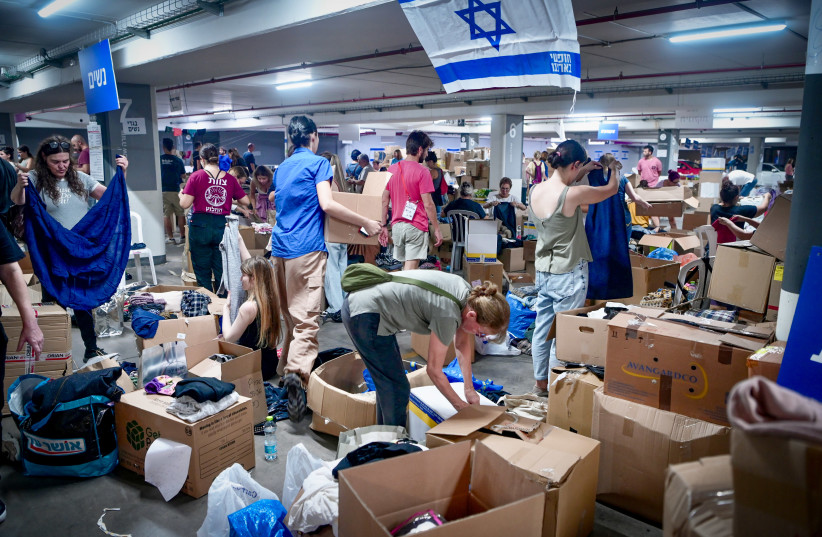Over 60% of the Israeli public have donated to various initiatives since the Gaza war began, according to a new report from Tel Aviv University (TAU) and Ben-Gurion University of the Negev (BGU) in Haifa.
The rates of volunteering and donations are much higher than data collected in the past – both in ordinary times and during previous crises.
Focusing on the third week of the war, the report’s findings reflect a picture of extraordinary solidarity. The average monetary donation per person has doubled, they said.
For example, the average weekly monetary donation per person was NIS 458 NIS – almost double the sum documented in similar reports in the past. Nearly two-thirds of the public (62%) donated to various initiatives including to organizations, communities, campaigns or individuals in need; giving either money or gifts in kind including breastmilk and blood donations. This percentage is much higher than figures reported in the past – 42% in the COVID year 2020, and 47% in 2019, an ordinary year.
This exceptional solidarity was also manifested in the fact that many Israelis donated to more than one body: 62% of the donors contributed equipment, food, or other necessities to IDF soldiers and the security forces; 53% gave to families whose loved ones had been killed or kidnapped or are still missing or to people injured or otherwise impacted by the war; 21% donated to hospitals and rescue forces; 12% gave to support the rehabilitation of evacuated communities; and nine percent gave to other causes.

“All of Israel is responsible for one another”
The concept of “All of Israel is responsible for one another” – first seen in the Talmud (Shavuot 39a) – is demonstrated in real time today.
The report was authored jointly by senior lecturer Dr. Hagai Katz in BGU’s business administration department; and Dr. Osnat Hazan and attorney Galia Feit from TAU’s Institute for Law and Philanthropy. The study is based on the responses of 563 persons over the age of 18 who represent Israeli society – women and men, Jews and non-Jews, of different ages, with different levels of education, income, and religiosity.
With regard to volunteering, the report indicates that 41% of the respondents had volunteered in one way or another, including social and community initiatives, compared to 31% in 2019 and 22% in 2020.
The researchers note that the data reflect an unprecedented reaction of Israeli society to Hamas atrocities and their terror war. While during the COVID crisis in 2020, the rate of volunteering and donations was lower than in ordinary times (2019), in the current war the figures are significantly higher than data collected in the past, both in quiet times and during crises, and the sums of monetary donations have doubled.
